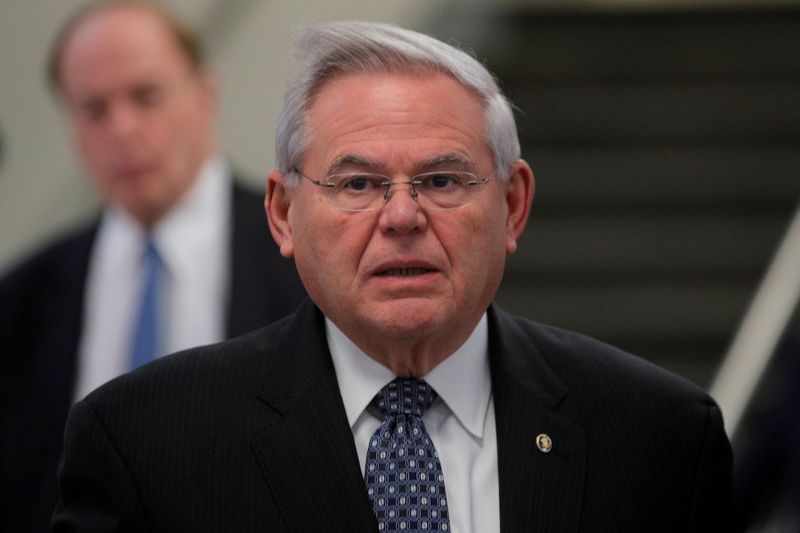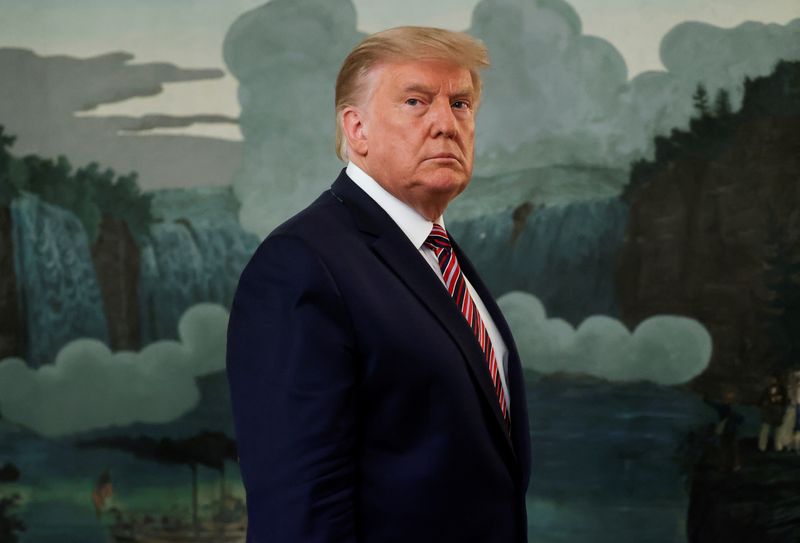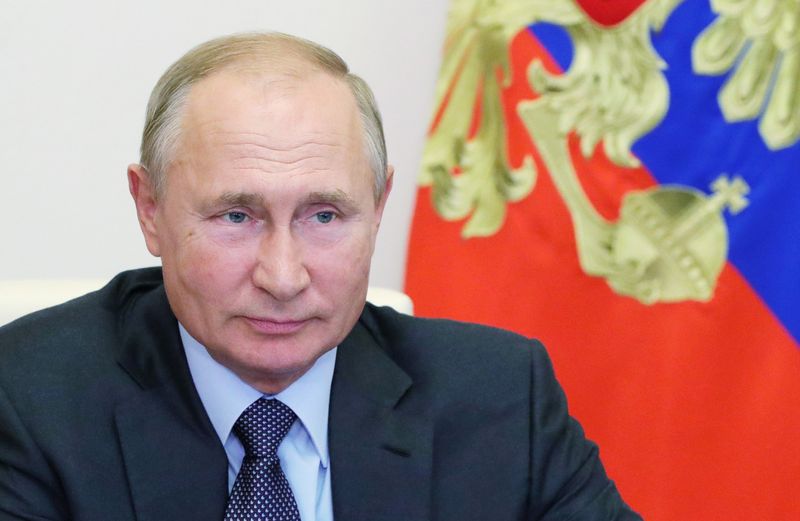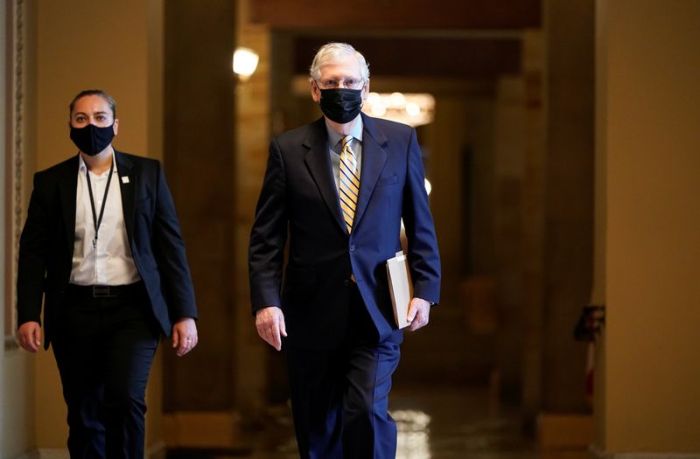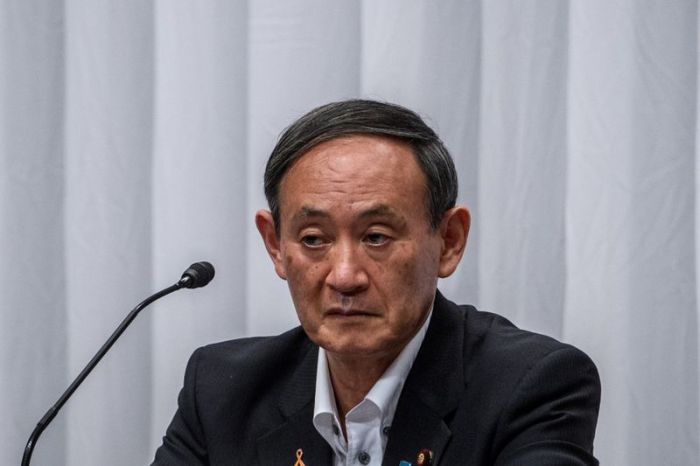WASHINGTON (Reuters) – Democratic U.S. senators introduced a bill on Thursday that would require President Donald Trump to impose sanctions on any Russian involved in the alleged payment of bounties to militants for killing U.S. and allied forces in Afghanistan.
The legislation would require Trump to certify whether the Russian government offered, ordered or was responsible for bounties for killing U.S. and allied forces.
If his administration found that Moscow did so, the measure would further require Trump to impose asset-blocking and visa-ban sanctions on Russian President Vladimir Putin and other senior Russian involved in the bounties.
Reports about U.S. intelligence findings that Moscow paid the Taliban to kill American troops in Afghanistan emerged in late June. Russia denied the reports, and Trump has made clear he did not believe them.
The bill, although unlikely to pass the Republican-run Senate, adds to pressure on Trump, who is already under fire for what critics say is a pattern of disrespect for the military after a media report that he denigrated fallen soldiers in France.
Trump and his supporters say he is strongly pro-military, noting among other things increases in the defense budget during his presidency.
The Republican president trails Democrat Joe Biden in national opinion polls ahead of the Nov. 3 election.
The bill’s co-sponsors include Senator Bob Menendez, ranking Democrat on the Senate Foreign Relations Committee, as well as Senators Jeanne Shaheen, Dick Durbin, Richard Blumenthal, Jeff Merkley and Tammy Duckworth.
“We are introducing this legislation today because this President’s deference to Vladimir Putin demands that Congress proactively shape U.S. foreign policy toward Russia, especially with respect to sanctions,” Menendez said in a statement.
Democrats have accused Trump, who has long pushed warmer U.S. ties with Russia, of not taking intelligence information concerning soldiers’ deaths seriously enough.
(Reporting by Patricia Zengerle; Editing by Michelle Price, Peter Cooney and Tom Brown)

